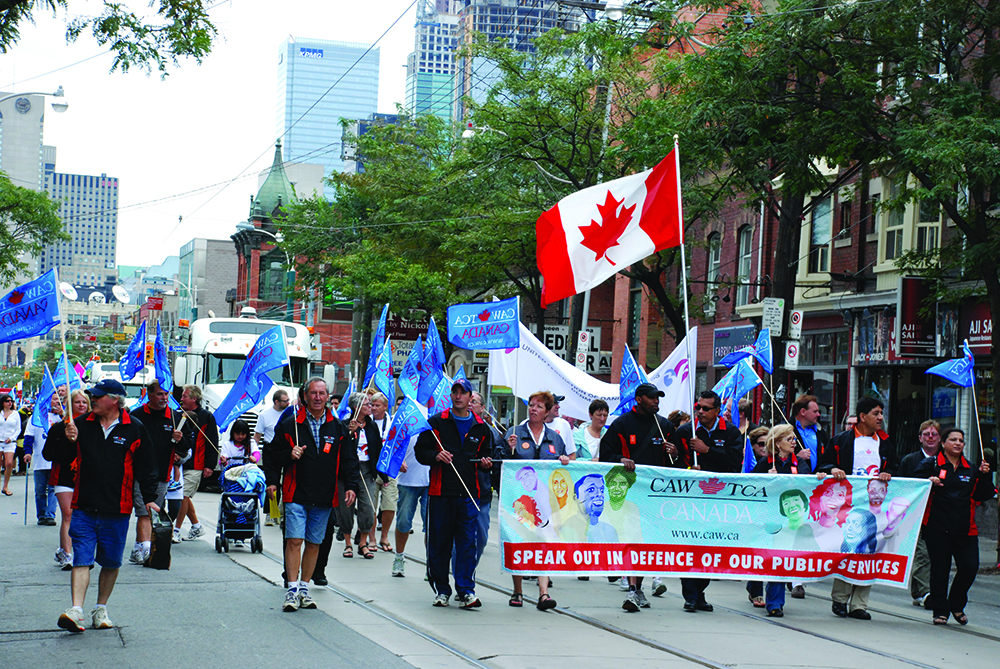Kanchi Uttamchandani | Assistant News Editor
Featured image: Workers looking to fight back against unfair labour conditions take to the streets. | Photo courtesy of Wikimedia Commons
York’s activist community, including the Socialist Fightback Club, Fight for $15 & Fairness, Real Food Real Jobs coalition and the YFS, continue to flaunt their solidarity, attending Toronto’s annual Labour Day Parade.
Farshad Azadian, former Osgoode student and organizer of the Socialist Fightback Club at York, considers this occasion important for building student and worker solidarity in the fight against austerity and inequality.
“Many workers are looking [for a way] to fight back against layoffs, privatization, cuts to wages and pensions, and are looking for socialist ideas,” claims Azadian.
“We will be holding meetings to discuss issues facing workers—on-and off-campus—and especially being active in supporting struggles of university workers, such as academic staff,” he adds.
Precarious labour was one key issue identified at the parade, with local unions scrutinizing a provincial review of the Labour Relations Act and the Employment Standards Act that determine conditions of employments such as wages, hours of work and sick leave.
“Precarious work doesn’t have a legal definition per se in Canada—it does in other countries—it’s more of sociological concept for a range of labour that is non-standard, contingent, contract or irregular. Often these are jobs at or just above the minimum wage with no benefits and lacking any job security,” says Andrew Langille, Osgoode graduate and internationally recognized labour law scholar.
Langille says that youth are the primary victims of the precarious labour market in the GTA.
“We’ve essentially created a precarious underclass of low-waged workers in the service and retail sectors who lack any meaningful representation or ability to address the power imbalance with their employers,” he says.
Langille believes it has become easier for employers to exploit workers due to the outdated nature of the Employment Standards Act.
“Mike Harris, a Progressive Conservative premier, allowed employers to pay less for overtime, get young people to work for free, made it harder to file complaints and hamstrung the ability of unions to organize,” argues Langille.
He adds that while the Wynne government has ordered a review of the ESA, the actual prospects are quite dim for any meaningful reforms that will benefit workers.
“The [Employment Standards Act] hasn’t been updated in 15 years as Dalton McGuinty and Kathleen Wynne are beholden to a range of corporate interests, so our laws are rusting in a sense.”
Meanwhile, other York activists are mobilizing to address precarious labour. Osgoode’s free legal clinic, known as the Community and Legal Aid Services Programme, or CLASP, spearheaded a community project earlier this year to address precarious work conditions created by temporary help agencies recruiting workers in the area.
“Our current project is in its early stages of collecting information from the community and making a freedom of information request about the prevalence of temporary agencies. We hope to use the information being gathered to inform future law reform initiatives,” says Nicola Holness, community outreach counsellor at CLASP.
Organized by the Toronto and York Region Labour Council, this year’s parade featured a unifying theme of “We Stand For Fairness” and witnessed a congregation of many different unions, each with their unique demands and goals.




